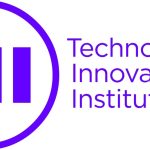Revolutionizing Healthcare With Technology Innovation Hospital: Experience The Future Of Medical Advancements
The Impact of Technology Innovation in Hospitals: A Revolutionary Change in Healthcare
Introduction
Dear Readers,
1 Picture Gallery: Revolutionizing Healthcare With Technology Innovation Hospital: Experience The Future Of Medical Advancements

Welcome to this article where we explore the remarkable advancements in technology innovation within hospitals. In this rapidly changing world, healthcare providers are embracing cutting-edge technologies to enhance patient care, improve operational efficiency, and revolutionize the healthcare landscape. From artificial intelligence to telemedicine, these innovations are revolutionizing the way medical services are delivered. Join us as we delve into the world of technology innovation in hospitals and uncover the immense benefits it brings to both patients and healthcare professionals.
Overview of Technology Innovation in Hospitals

Image Source: adlittle.com
Technology has become an integral part of modern hospitals, driving significant improvements in patient care, diagnosis, treatment, and management. With the aid of sophisticated medical devices, advanced software systems, and data analytics, hospitals are now able to provide personalized and precise healthcare services. These innovations have transformed the way healthcare professionals operate, leading to faster and more accurate diagnoses, streamlined workflows, and improved patient outcomes. Let’s explore the various aspects of technology innovation in hospitals and understand the impact it has on healthcare delivery.
What is Technology Innovation in Hospitals?
Technology innovation in hospitals refers to the implementation of advanced technologies and digital solutions to enhance healthcare services, improve patient outcomes, and optimize operational efficiency. It involves the integration of cutting-edge medical devices, software systems, telecommunication networks, and data analytics to deliver high-quality, patient-centric care. By leveraging technology, hospitals can provide more accurate diagnoses, personalized treatment plans, and efficient patient management.
Who Benefits from Technology Innovation in Hospitals?
Technology innovation in hospitals benefits various stakeholders within the healthcare ecosystem. Patients are the primary beneficiaries, as they receive improved access to healthcare services, faster diagnoses, and personalized treatment plans. Healthcare professionals also benefit from these innovations as they can deliver more efficient care, access real-time patient data, and collaborate seamlessly with multidisciplinary teams. Additionally, hospitals themselves benefit from increased operational efficiency, reduced costs, and improved patient satisfaction rates.
When and Where Did Technology Innovation in Hospitals Begin?
Image Source: licdn.com
The journey of technology innovation in hospitals began several decades ago, with the advent of electronic medical records and diagnostic imaging systems. However, the pace of innovation has accelerated in recent years with advancements in artificial intelligence, robotics, telemedicine, and digital health solutions. These innovations have been adopted globally, transforming hospitals and healthcare systems worldwide.
Why is Technology Innovation in Hospitals Important?
Technology innovation in hospitals is of paramount importance due to its ability to improve healthcare outcomes, enhance patient experiences, and optimize resource utilization. By harnessing the power of technology, hospitals can provide faster and more accurate diagnoses, reduce medical errors, and offer personalized treatment plans. Additionally, technology innovation enables remote patient monitoring, telemedicine consultations, and virtual healthcare services, expanding access to healthcare in underserved areas.
How Does Technology Innovation in Hospitals Work?
Technology innovation in hospitals works through the integration of various technologies, including artificial intelligence, Internet of Things, big data analytics, and telecommunication networks. These technologies enable seamless communication and data exchange between medical devices, electronic health records, and healthcare professionals. By leveraging these interconnected systems, hospitals can collect, analyze, and interpret data to make informed decisions, improve care coordination, and optimize treatment outcomes.
Advantages and Disadvantages of Technology Innovation in Hospitals
Advantages:
1. Enhanced patient care through personalized treatment plans and faster diagnoses. 😄
2. Improved operational efficiency with streamlined workflows and reduced administrative burden. 😃
3. Access to real-time patient data for evidence-based decision-making. 📊
4. Increased patient engagement and empowerment through digital health solutions. 📱
5. Expanded access to healthcare services, especially in remote or underserved areas. 🌍
Disadvantages:
1. Privacy and security concerns regarding patient data and electronic health records. 🔒
2. Costly implementation and maintenance of advanced technologies. 💰
3. Potential for increased reliance on technology, reducing the human touch in patient care. 🤖
4. Resistance to change among healthcare professionals and limited digital literacy. 🙅♂️
5. Ethical considerations surrounding the use of artificial intelligence and robotics in healthcare. 🤔
Frequently Asked Questions (FAQ)
1. How does technology innovation improve patient care and outcomes?
Technology innovation improves patient care and outcomes by enabling faster diagnoses, personalized treatment plans, and remote patient monitoring. It also enhances care coordination, reduces medical errors, and improves patient engagement.
2. What are the challenges faced during the implementation of technology innovation in hospitals?
Challenges during the implementation of technology innovation include privacy and security concerns, high costs, resistance to change among healthcare professionals, and the need for adequate infrastructure and training.
3. How does technology innovation impact healthcare professionals?
Technology innovation empowers healthcare professionals by providing access to real-time patient data, enabling evidence-based decision-making, streamlining workflows, and improving collaboration among multidisciplinary teams.
4. Can technology innovation in hospitals bridge the healthcare gap in underserved areas?
Yes, technology innovation in hospitals can bridge the healthcare gap in underserved areas by enabling telemedicine consultations, remote patient monitoring, and virtual healthcare services, thereby expanding access to quality care.
5. What ethical considerations arise from the use of artificial intelligence and robotics in healthcare?
Ethical considerations related to artificial intelligence and robotics in healthcare include patient privacy, transparency in algorithms, the potential for bias, and the impact on the doctor-patient relationship.
Conclusion
In conclusion, technology innovation in hospitals has ushered in a new era of healthcare delivery, transforming the way medical services are provided. From personalized treatment plans to remote patient monitoring, these innovations have revolutionized patient care and improved healthcare outcomes. While challenges exist, the benefits outweigh the disadvantages, making technology innovation an essential aspect of modern healthcare. As we embrace these advancements, let us strive for a future where technology and human touch coexist harmoniously, ensuring the best possible care for all.
Final Remarks
Dear Readers,
Technology innovation in hospitals is a monumental leap forward in healthcare. It has the potential to shape the future of medicine and improve the lives of millions. However, it is crucial to approach these advancements with caution, ensuring that patient privacy, ethical considerations, and human connection remain at the forefront. Together, let us embrace technology innovation while upholding the core values of empathy, compassion, and excellence in healthcare.
This post topic: Technology Innovation

